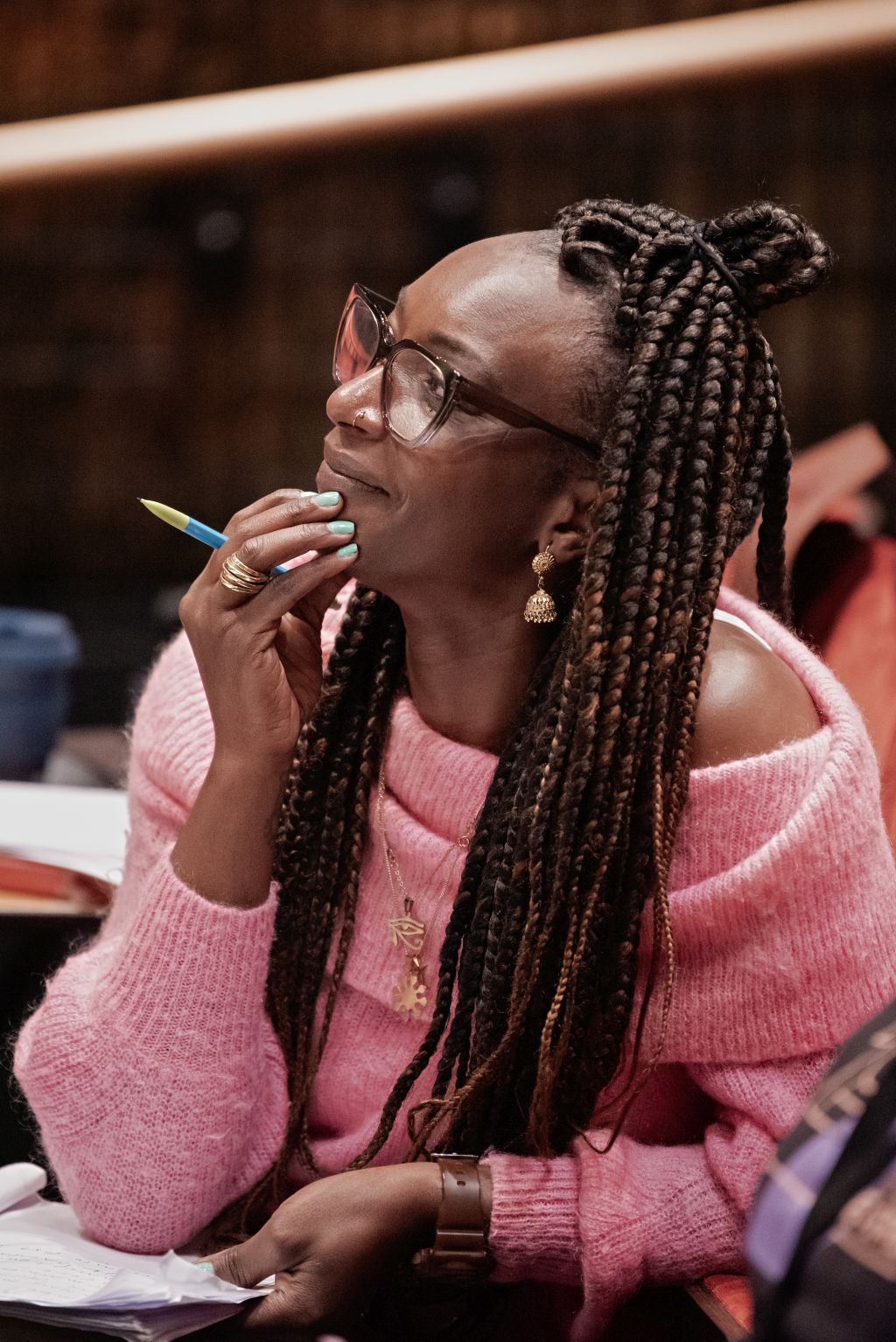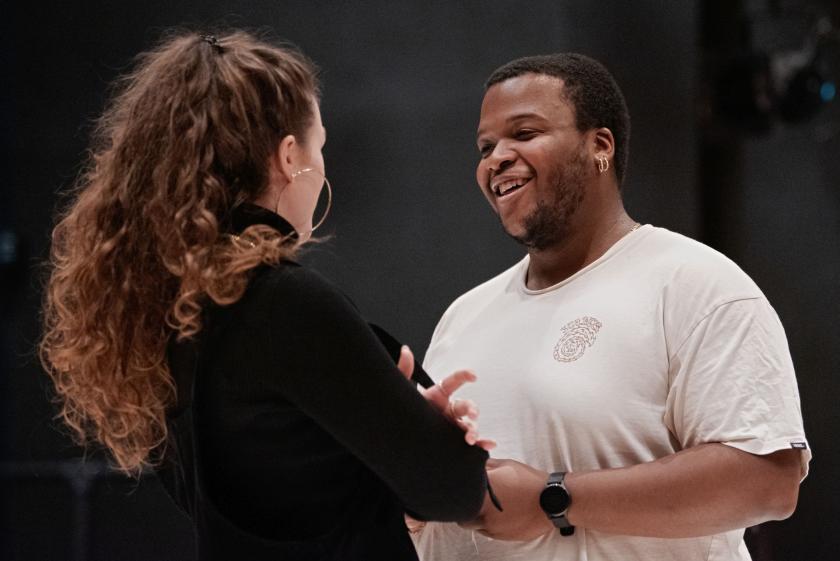People often ask how long a play takes to make its way out of you. And it’s always a valid question because no matter how beautiful, soft, joyful, or short a play is, there is a wrestling match that takes place between the idea lodging itself somewhere in you, and it turning into words that actors can have fun getting to know. With Black Love, opening this week at the Kiln Theatre, that journey from the story embedding itself to a rehearsal script took almost seven years.
When I was first commissioned in 2019 to write a play for Paines Plough, I had no idea what it was I wanted to write. Or rather I didn’t want to write the story that had been haunting me to tell since an incident in a supermarket a few years before where I had witnessed two men talking about Black women in a way that I found upsetting and disturbing. "Misogynoir" is was a term first coined by the gay Black feminist Moya Bailey. It defines the sexism and racism that are directed particularly at Black women and encompasses the different ways in which Black girls and women are erased, ridiculed, reduced, and criminalised. As a dark-skinned Black woman, I am confronted by this reality daily and was reflecting on that a great deal as I tried to grapple with the ideas that were forming. (The playwright in rehearsal below)
 As the discussions about what to write continued, it seemed that Black Love as a play, and more importantly as a musical, was what I really wanted to write. Music has always been a huge part of my life, and more recently my working life. Whilst being a freelance writer, I had continued to work in music festivals – moving between roles from site manager to taking responsibility for artists’ contracts. I got to listen to live music almost every day and loved this world. But this was the first time I was considering bringing music fully into my playwriting world. I had collaborated with Ben and Max Ringham previously on a community play at the Kiln, and they seemed like the perfect musical partners for this project, too.
As the discussions about what to write continued, it seemed that Black Love as a play, and more importantly as a musical, was what I really wanted to write. Music has always been a huge part of my life, and more recently my working life. Whilst being a freelance writer, I had continued to work in music festivals – moving between roles from site manager to taking responsibility for artists’ contracts. I got to listen to live music almost every day and loved this world. But this was the first time I was considering bringing music fully into my playwriting world. I had collaborated with Ben and Max Ringham previously on a community play at the Kiln, and they seemed like the perfect musical partners for this project, too.
I started the writing process soon after, with the first draft done by early 2020. I sent it in with all the trepidation and vulnerability that most first drafts bring. I knew it wasn’t quite there but could not fully explain what was missing.
Then in May 2020, the George Floyd murder hit the news, and with all the conversations happening globally, the shape of the play started to change. By the end of that year, the musical had become the story we now see. It seemed to me that after so long feeling that the only way to deliver stories of Black lives and Black experiences was to somehow make it "safe" for white audiences that I was giving myself permission to tell a story that delivered something much more raw in content and form.
Racism is a reality of our lives in the UK, and we can no longer pretend that is not the case. We can no longer protect those whose lives aren’t blighted by it from the harshness of how it plays out in our society – and the microcosms of it personally, professionally, and spiritually.
Black Love is a theatrical expression of a love we rarely see on stage - that's to say, about a brother and sister sharing their lives in a small flat in London against the background of global turmoil. It is about the joy and wholeness that can and does exist for many Black British people and families, and how that is disrupted by the privilege of those that have never been othered. I hope the show allows all audiences the space to question the choices we make and how those choices directly impact our lives.
It is an utter joy to not only be working with a cast so dedicated to bringing the truths and joys of the piece alive, but also with a creative team that have worked incredibly hard to make sure that Black Love and the world that it inhabits in this play speak to audiences in a way that is theatrically exciting and form-bending. Theatre is never something you make alone, and it should never be in isolation of the community and world around it, and for me I think that Black Love speaks as much to the streets of Kilburn, where the Kiln is, as it does to the global violence we must address.
As an artistic director of tiata fahodzi, a British-African heritage theatre company, I know that will also be my focus for how we engage with artists and audiences alike.
I am proud of this story, all the people that understood the assignment and made it happen.















Add comment